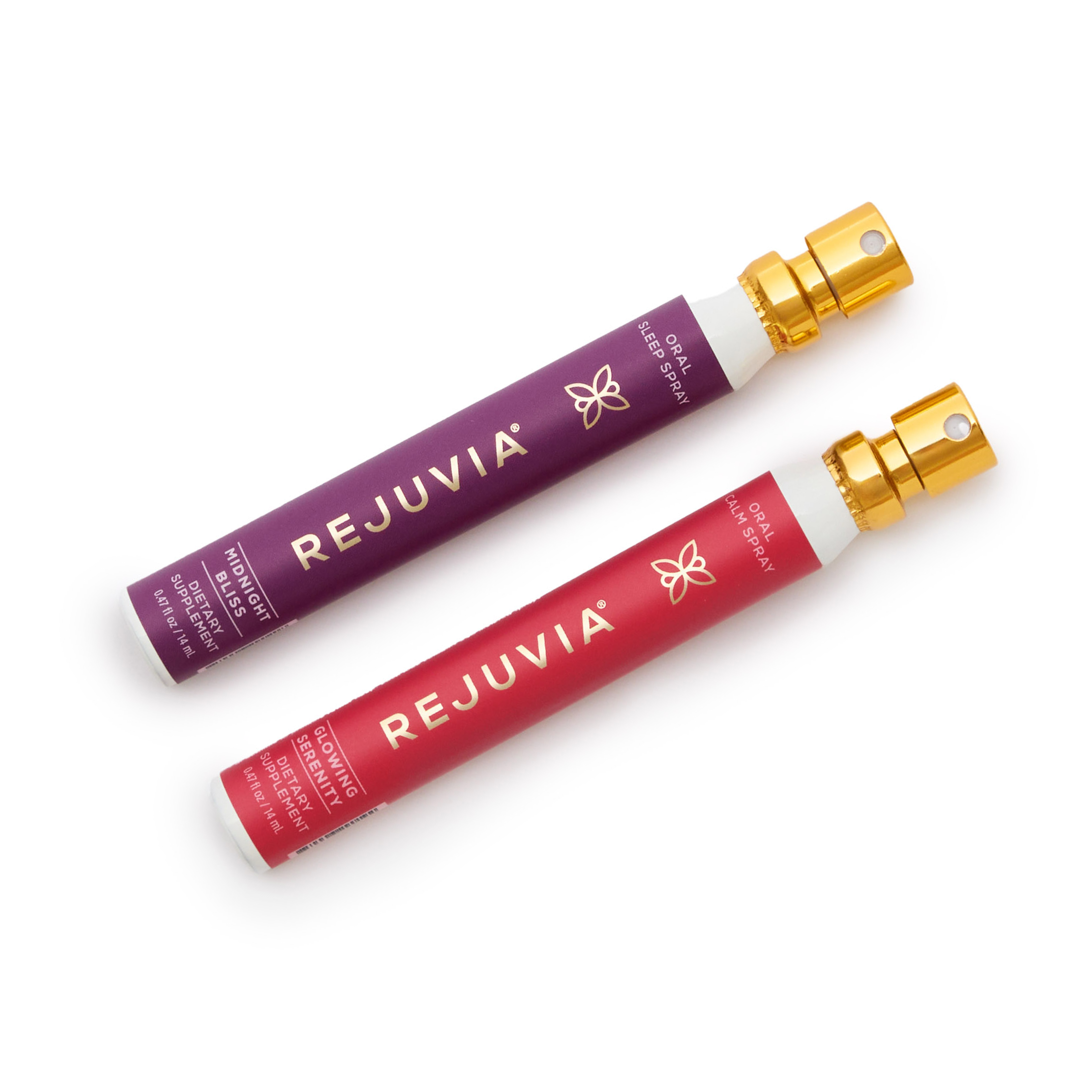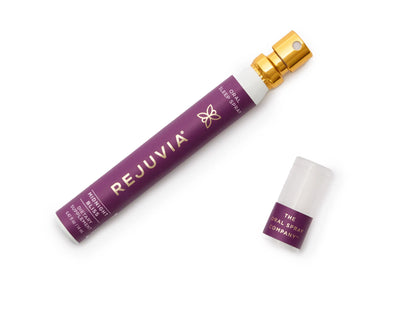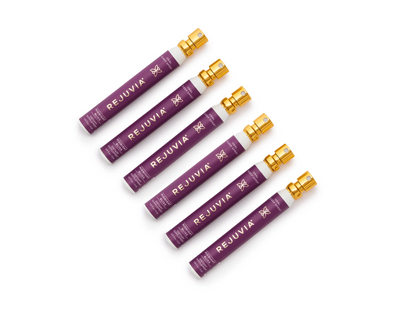If you're struggling with sleep, melatonin and valerian are two popular over-the-counter options that work differently to address sleep issues:
- Melatonin: A synthetic version of the hormone your body naturally produces to regulate sleep. It's best for jet lag, shift work, or trouble falling asleep quickly. Works within 30–60 minutes.
- Valerian: A plant-based supplement that calms the nervous system. It's ideal for stress-related insomnia or anxiety-driven sleep troubles but requires consistent use over 2–4 weeks for noticeable effects.
Quick Comparison:
| Feature | Melatonin | Valerian |
|---|---|---|
| Best For | Jet lag, shift work, quick sleep onset | Stress-related insomnia, relaxation |
| How Fast It Works | 20–60 minutes | Days to weeks of regular use |
| Primary Action | Resets sleep-wake cycles | Reduces stress and tension |
| Usage Duration | Short-term | Short-term with breaks |
Choose based on your sleep challenge: melatonin for timing-related issues, valerian for stress-related problems. Always consult a healthcare provider before starting any supplement.
Melatonin vs Valerian Root Choose the Right Sleep Support
Melatonin and Valerian Explained
Getting to know these sleep aids can help you decide which one might work best for your needs. While both aim to improve sleep, they come from different sources and function in unique ways within your body. Let’s take a closer look at how each works.
Melatonin: The Sleep Hormone
Melatonin is a hormone naturally produced by your brain every evening. It’s released by the pineal gland - a tiny structure nestled deep in your brain - to signal that it’s time to relax and prepare for sleep. Typically, your body starts producing melatonin one to three hours before bedtime, especially as it gets darker outside.
This hormone is key to managing your circadian rhythm, also known as your internal body clock. As melatonin levels rise, your body begins to slow down. Functions like body temperature, blood pressure, and sensitivity to light decrease, creating the perfect conditions for sleep.
The melatonin supplements you see on store shelves are completely synthetic, made in laboratories rather than derived from animals or plants. These supplements provide an extra dose of melatonin to support your body’s natural production. In fact, over 27% of U.S. adults use melatonin to help with sleep-related issues.
People commonly turn to melatonin supplements for challenges like jet lag, insomnia, or delayed sleep-wake phase disorder. They can help individuals fall asleep faster, improve the quality of their sleep, and even extend the total time spent sleeping. It’s worth noting that melatonin levels can vary based on factors like age and gender.
Valerian: The Herbal Sleep Aid
Valerian takes a completely different approach, offering a plant-based remedy for sleep. Derived from the roots and stems of Valeriana officinalis, a flowering plant native to Europe and Asia, valerian has been used as a traditional sleep aid since the 18th century. Unlike melatonin, which your body naturally produces, valerian is purely sourced from plants.
The root of the valerian plant is the main ingredient used in supplements. It contains compounds known for their calming effects and is available in various forms, including capsules, tablets, and liquids.
What sets valerian apart is its long-standing history as a natural remedy. For centuries, people have relied on this herb to help them relax and drift off to sleep. Unlike synthetic sleep aids, valerian works by supporting your body’s natural ability to unwind rather than directly inducing sleep.
Valerian is often preferred by those who lean toward herbal remedies or want to avoid hormone-based options like melatonin. It’s particularly popular among individuals dealing with stress-related sleep troubles or those who struggle to quiet their minds at night.
While melatonin directly influences your sleep-wake cycle, valerian focuses on relaxation. Each one addresses different aspects of sleep, making them suited to distinct challenges.
How Each Sleep Aid Works
Let’s explore how melatonin and valerian function to improve sleep. Each of these supplements operates through unique pathways, targeting specific sleep challenges. Whether you’re struggling to fall asleep, stay asleep, or manage stress-related disruptions, understanding their mechanisms can help you make an informed choice.
How Melatonin Affects Sleep Cycles
Melatonin works by engaging with receptors in the brain that regulate your sleep-wake cycle. Specifically, it binds to MT1 and MT2 receptors in the suprachiasmatic nucleus, often referred to as the body’s internal clock. Here’s how it helps: MT1 receptors reduce the time it takes to fall asleep, while MT2 receptors help maintain a steady sleep-wake rhythm throughout the night. This dual action makes melatonin particularly helpful for those dealing with disrupted sleep schedules, such as from jet lag or shift work. For best results, take melatonin about 30–60 minutes before bed to help reset your circadian rhythm.
How Valerian Calms the Nervous System
Valerian, on the other hand, focuses on calming the nervous system. Compounds like valerenic acid and isovaleric acid in valerian root influence GABA, a neurotransmitter that promotes relaxation. By boosting GABA’s calming effects, valerian helps reduce anxiety, ease muscle tension, and quiet a restless mind. Instead of directly inducing sleep, valerian creates a soothing environment that makes falling asleep easier - especially when stress or an overactive mind is the culprit. This approach highlights its role as a natural sedative, offering a different kind of support compared to melatonin.
Main Differences in How They Work
Melatonin and valerian tackle sleep issues from different angles. Melatonin adjusts your internal clock, making it ideal for circadian rhythm disruptions. Valerian, meanwhile, reduces stress and anxiety, helping you relax into sleep. Melatonin typically starts working within 30–60 minutes, while valerian may take several weeks of consistent use to fully show its calming effects. Since melatonin mimics a hormone your body already produces, the risk of building a tolerance is low. Valerian, when used as directed, is also considered safe without a high risk of dependency.
In short, melatonin is best for timing-related sleep struggles, while valerian shines when stress or tension stands in the way of a good night’s rest. Each offers a unique solution tailored to different sleep challenges.
Research on Sleep Aid Effectiveness
Melatonin has been shown to offer moderate improvements in sleep quality. Extensive research highlights its effectiveness, with studies reporting measurable benefits. For instance, a detailed analysis of multiple studies found that melatonin reduced the time it takes to fall asleep by an average of 7.06 minutes, increased total sleep duration by about 8.25 minutes, and improved scores on the Pittsburgh Sleep Quality Index by a weighted mean difference of –1.24 for individuals with primary sleep disorders. These benefits remain consistent over time, and melatonin does not appear to cause tolerance with continued use.
Evidence also supports melatonin's role in managing specific sleep challenges, such as jet lag and delayed sleep phase syndrome. Studies show it helps travelers adapt more quickly to new time zones and benefits individuals struggling with delayed sleep cycles. Additionally, research suggests melatonin can aid adults dealing with respiratory issues, metabolic conditions, and primary sleep disorders. While its impact on falling asleep may not match the speed of prescription sleep aids, melatonin remains a reliable and measurable option for improving sleep.
On the other hand, research on valerian is less robust and conclusive. Its potential benefits often rely on subjective feedback rather than clear clinical data, and it may require consistent, long-term use to show any noticeable effects. For those seeking immediate, measurable improvements in sleep, melatonin stands out as the more dependable choice.
sbb-itb-de8e20a
Safety and Side Effects
Melatonin Safety Information
Melatonin may interact with certain prescription medications. If you're currently taking any, it's important to check with your healthcare provider to ensure melatonin use won't cause any issues.
Valerian Safety Information
Valerian, a popular herbal sleep aid, has a wider range of potential interactions. It's especially important to be cautious if you're taking sedative medications or drinking alcohol, as valerian can amplify their effects. Before adding valerian to your routine, consult your healthcare provider to avoid any unwanted complications.
Special Groups and Precautions
For pregnant or breastfeeding individuals, and for those on prescription medications, extra care is essential when considering sleep aids. A conversation with your healthcare provider can help you make the safest and most suitable choice for your situation.
Which Sleep Aid to Choose
Selecting between melatonin and valerian depends on your specific sleep challenges and how quickly you need results. Each one serves a distinct role in improving sleep quality.
Best Times to Use Melatonin
Melatonin is ideal for addressing disruptions in your circadian rhythm. For instance, if you're dealing with jet lag from crossing multiple time zones, melatonin can help reset your internal clock. It typically takes effect within 20 to 60 minutes, making it a great option for immediate sleep onset issues.
Shift workers who need to adjust to irregular schedules, like night shifts or rotating shifts, can also benefit from melatonin. It helps realign their sleep-wake cycle to match their work hours.
Additionally, melatonin is useful for occasional sleep troubles. If you usually sleep well but occasionally find yourself wide awake at night, melatonin's quick action can help you drift off more easily. However, for more consistent or stress-related sleep issues, valerian might be a better fit.
Best Times to Use Valerian
Valerian is a better choice for sleep problems caused by stress or anxiety. If you often find your mind racing or your body tense at bedtime, valerian's calming effect on the nervous system can help you relax and prepare for sleep.
Unlike melatonin, valerian requires regular use over time to deliver noticeable results. It may take several days or even weeks of consistent use to see significant improvements. This makes it a good option for those willing to commit to a longer-term approach.
Valerian is particularly effective for chronic sleep issues tied to stress or anxiety. Whether it's work pressures, personal challenges, or general life stress keeping you awake, valerian's gradual, soothing effects can target the root cause better than melatonin's quick-fix approach.
Side-by-Side Comparison Chart
Here's a quick comparison to help you decide:
| Feature | Melatonin | Valerian Root |
|---|---|---|
| Best Use Cases | Jet lag, shift work, trouble falling asleep quickly | Stress-related insomnia, mild to moderate sleep issues, relaxation |
| How Quickly It Works | 20-60 minutes | Requires days to weeks of consistent use |
| Ideal For | Occasional sleep problems, circadian rhythm disruptions | Long-term sleep challenges, anxiety-related sleep issues |
| Duration of Use | Short-term; consult a doctor for extended use | Short-term (up to 28 days), with periodic breaks recommended |
| Best If You Need | Quick sleep onset, schedule adjustments | Ongoing relaxation and stress management |
While both supplements can be helpful, they aren't substitutes for professional medical advice. If you've been dealing with persistent sleep issues for months, it's important to consult a healthcare provider to explore underlying causes and develop a comprehensive treatment plan.
How to Use Each Sleep Aid Safely
To make the most of sleep aids while minimizing potential risks, it's essential to understand how to properly dose and time their use. Here's a closer look at melatonin and valerian, along with some general safety tips.
Melatonin Dosage and Timing
Start with a low dose of melatonin to prevent overuse. Take it about 30–60 minutes before bedtime to help adjust your sleep schedule. After taking melatonin, avoid tasks that require focus or alertness, especially if alcohol is involved.
If you notice side effects like headaches, nausea, or dizziness, try resting, drinking water, and steering clear of alcohol.
Valerian Dosage and Timing
For valerian root extract, a dose of 300–600 mg taken 30 minutes to 2 hours before bed is recommended. Keep in mind that it may take 2 to 4 weeks of regular use to see improvements in sleep quality.
Avoid taking higher doses, such as 900 mg, as these have been linked to a "hangover effect" the next morning. If you prefer valerian tea, steep 2 to 3 grams of dried valerian root in a cup of hot water for 10 to 15 minutes. If surgery is on the horizon, stop using valerian well ahead of time due to its effects on the central nervous system.
Following Product Instructions
Always read and follow the instructions on the product label. Look for the "USP" marking, which indicates quality, as herbal supplements can vary significantly between brands.
Limit valerian use to one month unless advised otherwise. If you’ve been taking it consistently and decide to stop, taper off gradually over a week or two to avoid withdrawal symptoms.
It’s also important to inform your healthcare provider about any supplements you’re using. Some combinations can lead to unexpected interactions. If you’re pregnant, breastfeeding, or planning to conceive, consult your doctor before using melatonin or valerian.
Proper dosing and timing not only enhance the effectiveness of these sleep aids but also help minimize unwanted side effects.
Final Thoughts on Sleep Aid Selection
Choosing the right sleep aid becomes easier when you understand how each option works. Both melatonin and valerian can support better sleep, but they do so in different ways. Let’s break it down.
Main Points to Remember
Melatonin is ideal for fixing circadian rhythm issues. If you’re dealing with jet lag, irregular work schedules, or trouble falling asleep at a regular time, melatonin can help reset your internal clock. It usually starts working within 30 to 60 minutes.
Valerian is better for stress-related sleep problems. If anxiety or an overactive mind keeps you awake, valerian’s calming effects can help ease your nervous system. However, it’s most effective after consistent use for 2 to 4 weeks.
The right choice depends on your sleep challenges. Frequent travelers or night shift workers might find melatonin more helpful, while those whose sleep is disrupted by stress may benefit more from valerian.
For best results, take melatonin 30–60 minutes before bed. Valerian, on the other hand, can be taken 30 minutes to 2 hours before bedtime, offering a bit more flexibility in your evening routine. Understanding these timing differences can help you decide which fits your lifestyle better.
Safety First
Always consult a healthcare provider before starting any sleep supplement. This is especially important if you’re on prescription medications, have existing health conditions, or are pregnant or breastfeeding.
Check the safety guidelines mentioned earlier for details on potential interactions and precautions. Look for products with "USP" verification to ensure they meet quality and potency standards.
Everyone’s sleep needs are different. Choosing the right aid depends on your unique situation, health, and goals. Seeking professional advice ensures you’re taking the safest and most effective steps toward better sleep.
FAQs
What’s the difference between melatonin and valerian for sleep, and how do I choose the right one for my needs?
Melatonin and valerian serve different purposes when it comes to improving sleep. Melatonin works by helping your body regulate its internal clock, making it especially helpful for those who struggle to fall asleep quickly - like when you're dealing with jet lag or adjusting to a new routine. Valerian, on the other hand, is a natural herb known for promoting relaxation. It may help ease stress or anxiety, which can, over time, lead to better sleep quality.
If falling asleep quickly is your main challenge, melatonin might be the right choice. However, if your sleep issues stem from stress or tension, valerian could be more effective. Keep in mind that valerian often requires consistent use before you see noticeable results. As always, talk to a healthcare provider before trying any new sleep aid to make sure it's safe and suitable for your needs.
What side effects or interactions should I watch for when using melatonin or valerian, especially if I’m taking other medications?
Melatonin might interfere with certain medications. For example, it could increase the risk of bleeding when taken with blood thinners like warfarin. It may also reduce the effectiveness of medications for blood pressure or immune suppression. When combined with sedatives, melatonin could cause excessive drowsiness. Additionally, it has the potential to influence blood sugar or blood pressure levels if paired with specific drugs.
Valerian, on the other hand, tends to have fewer interactions. However, it can still cause drowsiness or dizziness, particularly when combined with sedatives, alcohol, or other substances that affect the central nervous system. If you're taking any medications, it’s important to check with your healthcare provider before using melatonin or valerian to ensure they’re safe for your situation.
How quickly do melatonin and valerian work, and which is better for long-term sleep improvement?
Melatonin usually starts working within 30 minutes to an hour, making it a go-to choice for short-term sleep issues like jet lag or the occasional restless night. That said, it’s not typically advised for long-term use.
Valerian, in contrast, may take anywhere from 30 minutes to two hours to kick in and often needs to be taken consistently over several weeks to deliver noticeable results. While it’s generally considered safer for extended use, research on its long-term effectiveness remains limited.
Deciding between the two depends on your sleep needs. Melatonin works well for quick, short-term relief, whereas valerian might be better for those seeking a gradual, longer-term solution.
Related Blog Posts
- Best Natural Stress Relief Methods in 2025
- Oral Sprays vs Pills: Absorption Speed Test
- Complete Guide to Better Sleep Naturally
- Non-Habit Forming Sleep Aids: Why Custom Dosing Matters





